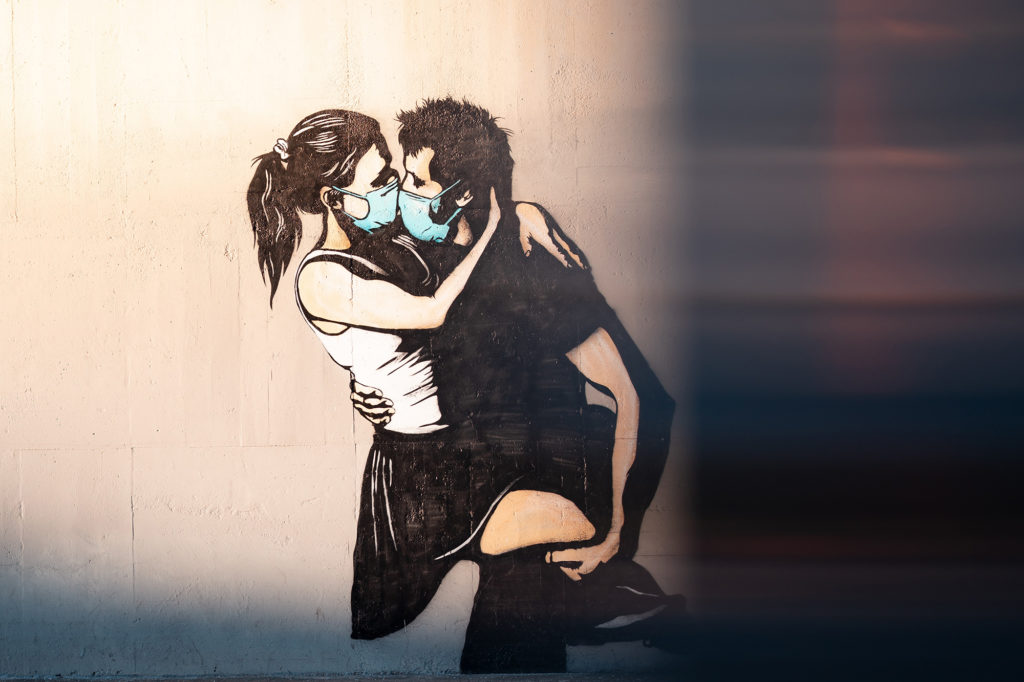
Note: This session is one of two sessions under the theme “Pandemics, planning and the right to the city”
Session hosts
- Erika Gubrium
- Gustavo Sugahara
- Marcin Sliwa
- André Kraemer Góes
Abstracts
Programme
Wednesday, October 28 2020, 14.15 – 15.45
- Will Black Lives finally matter when Black deaths are visible? Race, the revelatory crisis, and the right to the City in New Orleans, Louisiana
Roberto E. Barrios rbarrios@siu.edu (Southern Illinois University, Carbondale, US) - Movement Science: Data Storytelling and Counter Mapping
Joshua Poe joshuapoe001@gmail.com and Jessica Bellamy hello@jessicabellamy.design (Root Cause Research Center, US) - Pandemic and work from home: connotations on the lives of the working women of Mumbai Metropolitan Region
Sujayita Bhattacharjee sujayita100@gmail.com (U. Mumbai) - Urban Greenspaces and COVID-19: An Exploration of Park Use and Sense of Belonging in New York City
Jennifer Pipitone jennifer.pipitone@mountsaintvincent.edu (College of Mt St Vincent, Bronx, US) and Svetlana Jović (SUNY Old Westbury, US), Solenny Fernandez, Ryan Mejia, & Aaron Parajón (Woodland Ecology Research Mentorship Program, Wave Hill Public Garden & Cultural Center; Bronx, NY) - Hacking the Life Course: Ageing in the Smart-City
Gustavo Toshiaki Lopes Sugahara g.t.l.sugahara@medisin.uio.no (SERAF/UiO) - TBD
Erik Berg (HABITAT) or Marcin Sliwa (UiO)
About the session
The situation in which we found our cities during the COVID-19 pandemic and the resulting economic crisis have proven that extreme vulnerability, scarcity and unpreparedness is not only a problem of urban areas in the Global South. Scenes of public workers dressed in fully isolating-clothes, once associated with the Ebola crisis in Western Africa, became common in the everyday life of cities around the globe. The opening of mass graves was not an exclusivity of Manaus, but also part of the quotidian of New York, one of the wealthiest cities in the world.
Nevertheless, cities in the South are once again being hit the hardest. From India to Ecuador, unable to rely on social welfare systems, many people face a dilemma of staying home and starving, or risking their lives to expose themselves to the pandemic, so they can provide food and medicine for their families. In places where housing and sanitation conditions are poor, savings are depleted and governmental assistance inexistent, social isolation is not an option. The situation did not only affect the poor, as millions in the middle-classes are left without jobs and savings as well.
The ongoing pandemic is not just about health and poverty. It affects every aspect of our lives and the functioning of cities: from housing, transportation, mobility and energy use, to education, public space, social interaction and recreation. Everyone is affected, though not in the same way. For some, it is a matter of survival, while for others, a significant change in the quality of life and daily routines.
In these conditions of multiple shocks and stresses, cities also show signs of solidarity and reinvention. Despite the risks and restrictions, new networks emerged to assist the most vulnerable, for example to distribute food and hygiene products to the poorest, or to assist the elderly who could not leave their homes. In the meantime, we were forcibly brought to develop the potential – and realize the challenges of – using virtual networks to maintain ourselves connected to work and education, in an attempt to keep our lives going.
For cities which already struggled with providing basic services and adequate housing conditions before, the COVID-19 outbreak was truly devastating. But how did they react? What was the role of the informal sectors and their coping strategies to face the sanitary and economic crises? What lessons can we take from the impacts of COVID-19 in the most vulnerable areas to be able to plan and prevent for future crises?
With the above questions in mind, this session aims at exchanging ideas and thoughts about cities, informality and the role of urban planning in the context of the ongoing sanitary and economic crises. We invite everyone that has done, or is doing, related research to contribute to the session and submit an abstract. The aim is to put together presentations of case studies and/or reflections related to the topic, and to discuss what formal and informal strategies communities and governments are taking to cope with this difficult situation.